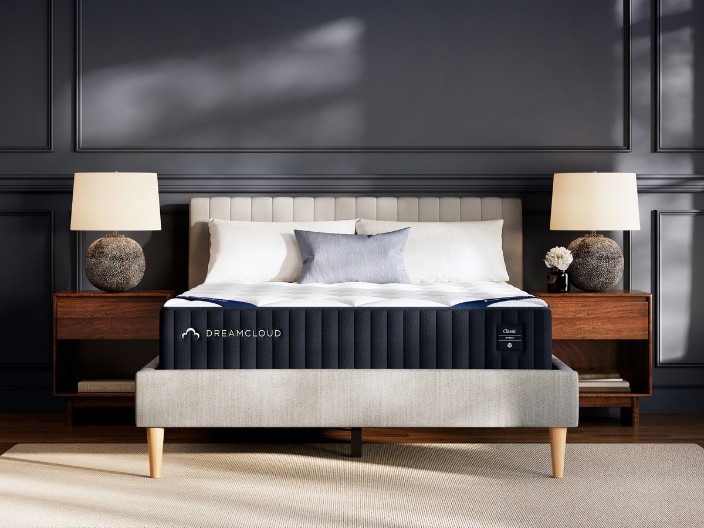Sleep Calculator
We all need rest, but did you know that sleep quality is just as important as quantity? Getting enough sleep regularly not only leads to improved physical health, it helps sharpen your mental understanding and improve your overall performance in life. That’s why having a reliable Sleep Calculator has now become a necessity. It tracks how much sleep you get every night so you can make adjustments if necessary. Sleep Authority seeks to explain why utilizing a Sleep Calculator may benefit everyone from students to athletes, new parents and even entrepreneurs.
How Much Sleep Do I Need?
Sleep is considered one of the most essential activities, yet individuals often overlook their sleep needs. Sleep needs can vary greatly depending on age, lifestyle and overall health condition. A sleep calculator can help determine the amount of sleep needed for an individual by considering variables such as sleep cycle, age, and lifestyle habits. Fortunately for us all, sleep calculators are easily accessible. They can provide invaluable insight into how many hours of sleep an individual should get each day to remain healthy and productive. That said, it is still advisable to visit your healthcare provider if you have any concerns or questions about your sleep routine.
Sleep Cycle Calculator
| Age Range | Hours of Sleep Required |
|---|---|
| Infants (0-3 years) | 14-17 hours |
| Toddlers (3-5 years) | 12-15 hours |
| Children (6-12 years) | 10-11 hours |
| Teenagers (13-17 years) | 8-10 hours |
| Adults (18+) | 7-9 hours |
Time for Sleep!
Everyone is unique and has different sleep needs, but there’s a science to figuring out your optimal bedtime. Thanks to experts’ research on the average adult sleep cycle of 90-120 minutes, you can determine when YOU should hit the hay! To ensure you get enough restorative slumber every night – irrespective of workdays or weekends – try setting regular wake up/sleep times tailored around daylight hours. Keep an eye open during sunlit windows and catch some zzzz’s during darker periods.
Time to Wake Up!
Ensure you have the best start to your day! Set the alarm based on a sleep calculator that considers both your bedtime and age. This allows for around four complete 90-minute sleep cycles, which enhances cognitive function throughout the day while keeping grogginess at bay.
What Happens During Sleep?
Slumber isn’t a one-size fits all activity; it comprises four distinct stages, collectively known as non-rapid eye movement (NREM), each with its unique purpose. To get the most out of your snooze time, familiarize yourself with these steps.
Stage 1 gives you that relaxed feeling and is considered lighter sleep
Stage 2 those dreams start to become more vivid – don’t be surprised if someone from high school pops up!
Stage 3 makes sure you’ve got enough zzzz for physical and mental rejuvenation before starting another cycle.
The fourth stage of slumber, known as rapid eye movement (REM) sleep, is a fascinating period for dreaming. During this time, your body remains temporarily paralyzed, but there’s an extraordinary spike in brain activity – evidenced by its vigorous movements behind closed eyes! Dreams can boost memory and complex thinking when awake because they occur during REM; making it nature’s secret supercharger while snoozing!
Your sleep quality isn’t just determined by the quantity of slumber you get. The true measure is in how your various sleep cycles blend to refresh both body and mind! NREM and REM play a key role here – earlier on, more time is spent in non-rapid eye movement (NREM), while later it’s rapid eye movement (REM). This combo enables us to wake up feeling revitalized, but without enough rest or an imbalance between these two phases, consequences for overall health follow. So take care that you’re sleeping soundly!
What are the consequences of Sleep Deprivation?
Sleep deprivation has numerous consequences. One of the most serious is an increased risk of accidents, especially when driving or operating machinery. Sleep deprivation impairs cognitive functioning, making focusing and paying attention harder. It also affects our physical health, as lack of sleep has been linked to many medical conditions such as obesity, heart disease, high blood pressure, diabetes, and stroke.
It can even take a toll on mental health – depression and anxiety are more likely in those who don’t get enough sleep. Furthermore, sleep deprivation can lead to lower immunity levels and an increased risk of infection; poor memory and decreased creativity; slower reaction times; mood swings; stress; weakened communication skills; irritability and fatigue. In short, not getting enough sleep can seriously affect your physical and mental well-being.
Tips to have better sleep
Establish a consistent sleep schedule
Go to bed and wake up at the same time every day, even on weekends and days off, to help your body develop a regular sleep pattern.
Avoid caffeine
Avoid caffeine late in the day. Caffeine is a stimulant that can interfere with sleep, so try not to consume it within 4-6 hours of bedtime.
Exercise regularly
Regular exercise helps improve sleep quality, but it’s best to finish exercising at least 3 hours before bedtime as vigorous physical activities can temporarily interfere with sleep patterns.
Reduce exposure to blue light
Blue light emitted from electronic devices such as phones and tablets can interfere with melatonin production and disrupt the body’s natural sleep-wake cycle, so turn off any electronics before going to bed or using blue-light filters if necessary.
Create a relaxing environment for sleeping
Make sure your bedroom is dark and quiet; keep temperatures cool; use blackout curtains or an eye mask if necessary; and make sure your mattress is comfortable and supportive.
Limit daytime naps
Limit daytime naps to 15-20 minutes long. Avoid taking naps after 3 pm or longer than 30 minutes as this may interfere with nighttime sleep patterns.
Sleep Authority is brought to you by Resident, the company that brings you Nectar, DreamCloud, Awara, Wovenly, Bundle, Home Well Designed and Level Sleep.

